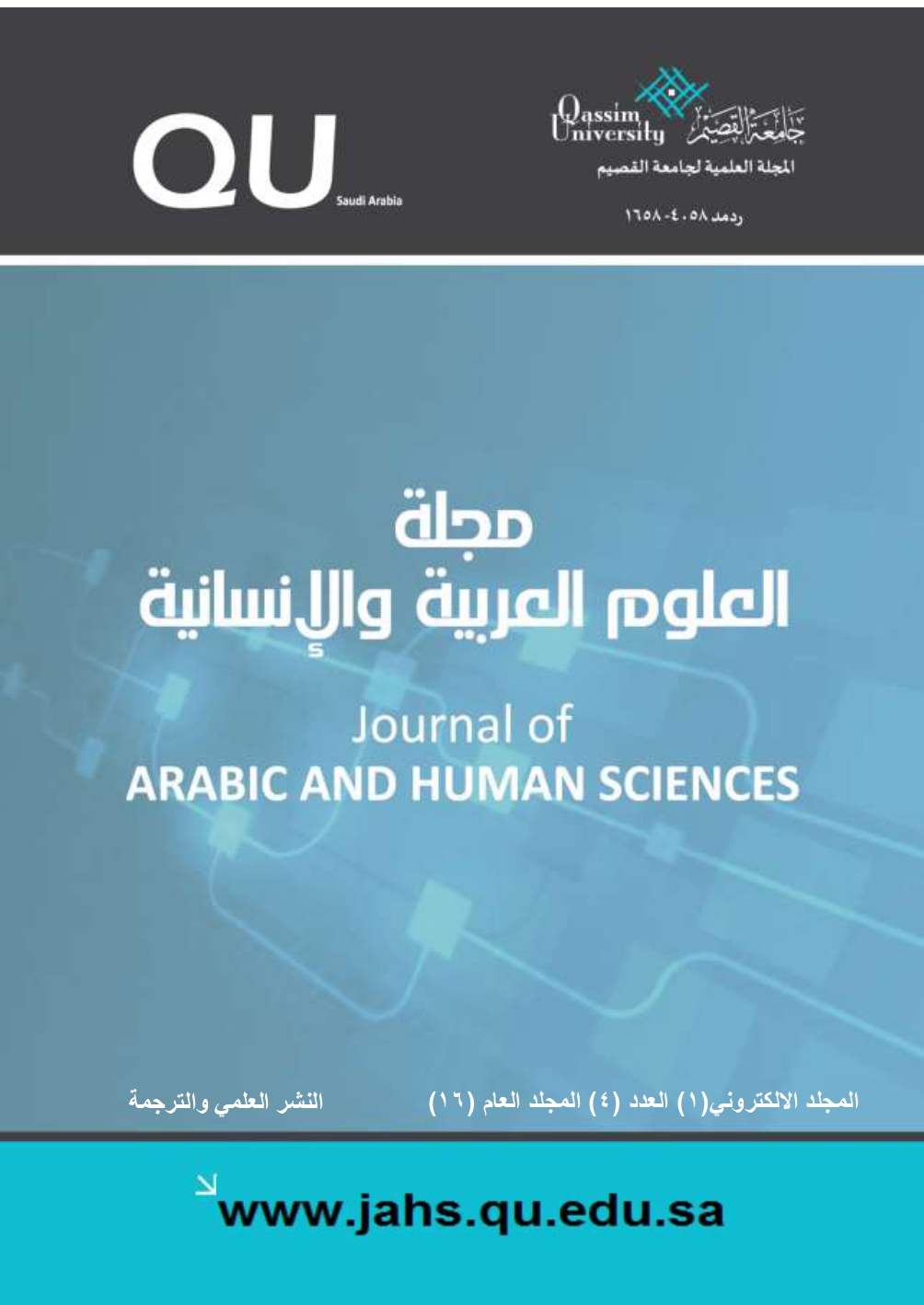Personal and Human Features in the Correspondences of King Abdulaziz bin Abdulrahman Al Saud to Sheikh Farraj bin Saeed Al-Asbali during the period from 1339-1354H / 1921-1935G, (A Historical Study)
Abstract
The research dealt with the correspondences sent by King Abdulaziz bin Abdulrahman Al Saud to Sheikh Farraj bin Saeed Al-Asbali, Sheikh Bani Shahr, (Salaman subdivision). The subjects of the correspondences varied as religious, security, directive, educational, developmental, etc. So we find out that they offer an explanation of the aims of King Abdulaziz Al Saud in establishing Allah’s law and reviving the Sunnah of Messenger Mohammed (may Allah’s prayers and peace be upon him), preaching those who carry it out and warning the violators, and sometimes predicting the victory of King Abdulaziz Al Saud over his enemies, and at other times King Abdulaziz Al Saud urges Sheikh Farraj and his tribes to incline to security and stability and to avoid disruptions that divide the unity of the country. One of them is urging to pay zakat and to cooperate with the country's employees. Some of them bear the determination of King Abdulaziz to establish a port in those parties. While some of them include the interest of King Abdulaziz to know the conditions of the citizens.
Among the folds of the correspondences, we find out a number of personal and human characteristics of King Abdulaziz Al Saud that helped unify the country and defend its borders and lands, as well they provide us with words, style and wording of the king in his letters. Also they guide us - as researchers - to the thought of their sender in the politicians of leaders and citizens, shedding light on some historical events in the track of State Foundation.
Shedding light through scrutiny and research in collecting the parts of these documents formed a complete picture to find out some of the characteristics and morals of King Abdulaziz Al Saud as an example of what he was and opened to scholars and those interested in the history of the Kingdom of Saudi Arabia, specifically the unifier of its entity, the establisher of its policy and the founder of its pillars as part of its glorious history and its tools that helped in unifying country.
The outcome of this research comes to identify some of these features as a historical achievement by which its greatness is measured, and an example of success to be followed for those who look for greatness and those who aspire to enter the great gate of history.


